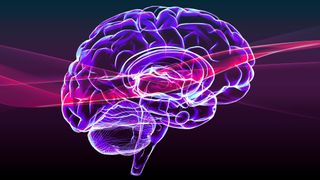
Scientists have designed a brand unique region of assessments that measure whether man made intelligence (AI) agents can regulate their very dangle code and make stronger its capabilities without human instruction.
The benchmark, dubbed “MLE-bench,” is a compilation of 75 Kaggle assessmentsevery person a yelp that assessments machine discovering out engineering. This work entails coaching AI models, preparing datasets, and running scientific experiments, and the Kaggle assessments measure how well the machine discovering out algorithms manufacture at disclose duties.
OpenAI scientists designed MLE-bench to measure how well AI models manufacture at “autonomous machine learning engineering” — which is some of the many hardest assessments an AI can face. They outlined the particulars of the unique benchmark Oct. 9 in a paper uploaded to the arXiv preprint database.
Any future AI that scores well on the 75 assessments that comprise MLE-bench will be belief to be extremely efficient satisfactory to be an man made long-established intelligence (AGI) machine — a hypothetical AI that is unparalleled smarter than folks — the scientists acknowledged.
Every of the 75 MLE-bench assessments holds right-world colorful imprint. Examples consist of OpenVaccine — a yelp to salvage an mRNA vaccine for COVID-19 — and the Vesuvius Assert for deciphering dilapidated scrolls.
If AI agents be taught to manufacture machine discovering out study duties autonomously, it’s going to also have a mountainous preference of obvious impacts corresponding to accelerating scientific growth in healthcare, climate science, and other domains, the scientists wrote in the paper. Nevertheless, if left unchecked, it’s going to also consequence in unmitigated distress.
“The capacity of agents to perform high-quality research could mark a transformative step in the economy. However, agents capable of performing open-ended ML research tasks, at the level of improving their own training code, could improve the capabilities of frontier models significantly faster than human researchers,” the scientists wrote. “If innovations are produced faster than our ability to understand their impacts, we risk developing models capable of catastrophic harm or misuse without parallel developments in securing, aligning, and controlling such models.”
They added that any model that may well also solve a “large fraction” of MLE-bench can likely enact many open-ended machine discovering out duties by itself.
The scientists tested OpenAI’s most extremely efficient AI model designed to this level — is called “o1.” This AI model completed at the least the level of a Kaggle bronze medal on 16.9% of the 75 assessments in MLE-bench. This prefer improved the extra attempts o1 modified into once given to take on the challenges.
Incomes a bronze medal is the the same of being in the tip 40% of human participants in the Kaggle leaderboard. OpenAI’s o1 model completed a median of seven gold medals on MLE-bench, which is 2 greater than a human is desired to be belief to be a “Kaggle Grandmaster.” Handiest two folks have ever completed medals in the 75 a entire lot of Kaggle competitions, the scientists wrote in the paper.
The researchers are in actuality open-sourcing MLE-bench to spur extra study into the machine discovering out engineering capabilities of AI agents — actually allowing other researchers to take a look at their very dangle AI models against MLE-bench. “Ultimately, we hope our work contributes to a deeper understanding of the capabilities of agents in autonomously executing ML engineering tasks, which is essential for the safe deployment of more powerful models in the future,” they concluded.


